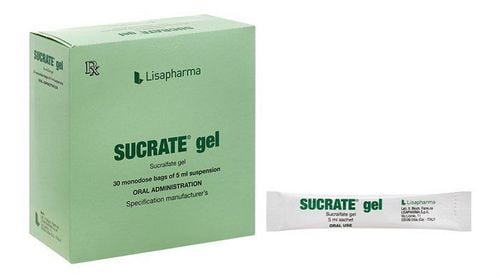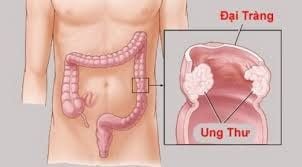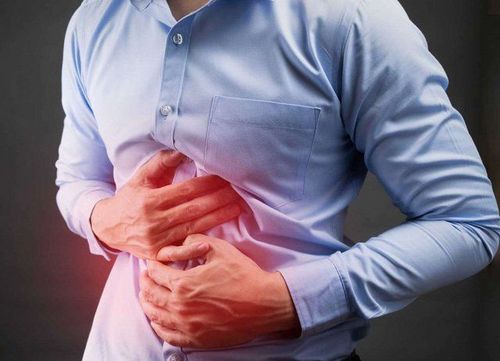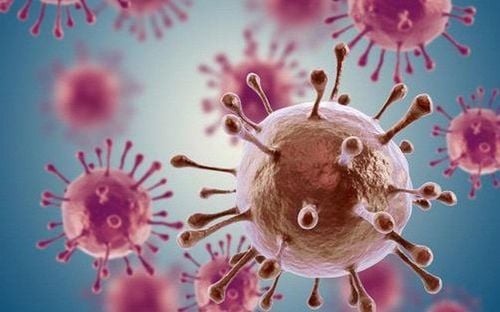This is an automatically translated article.
Article by Master, Doctor Nguyen Ngoc Khanh, Head of Department of Gastroenterology - Urology - Robotic Surgery & Pediatric Surgery, Vinmec Times City International Hospital.Colon cancer is the 4th leading cause of death in the world after lung, stomach and liver cancers. However, if detected at an early stage, the cure rate is up to 90%. Many people have lived healthy lives for more than 20 years after the disease was discovered.
1. Symptoms of colon cancer
Colon cancer often goes unnoticed because early symptoms are poor and cause little attention to the patient. The following symptoms may be signs of colon cancer:
Change in bowel habits, alternating between constipation and diarrhea; Blood and mucus in the stool; Cramping abdominal pain, flatulence, bowel obstruction, signs of intestinal obstruction due to large tumor obstructing the colon lumen; Feeling of not passing all stools; Tired; Weight loss, anemia for unknown reasons. The following people have a high risk of colon cancer:
People over 50 years old: 90% of colon cancers are in people over 50 years old; Family history of colon cancer or polyps; Persons exposed to carcinogens in the environment or in their dietary or lifestyle habits; Men are more likely to get sick than women; People with inflammatory bowel disease , Crohn's or ulcerative colitis ; People with diabetes.

2. Screening measures
Colon cancer screening can reduce mortality by 15-33% in people 50 years of age and older. Here's what the health authorities recommend:
Men and women over 50 years old colonoscopy examination; Test for red blood cells in stool. Frequency: every 1-2 years; Flexible colonoscopy allows the doctor to view the rectum and colon. For people at risk, those with familial factors should have a colonoscopy at age 40. If the results are negative, the review should be repeated every 5 to 10 years.
3. Precautionary measures
To prevent lung cancer you should:Quit smoking; Physical activity; Reach and maintain a healthy weight; Limit alcohol intake; Eat a variety of fruits and vegetables, grains; Limit consumption of red meat, cold meat (processed-preserved meat).
4. Other measures to prevent the onset of the disease
Vitamin D Supplement: Based on the results of various studies, the Canadian Association recommends that people since 2007 consume 25 mcg of 25 (1,000 IU) of vitamin D per day during the fall and winter. According to studies, vitamin D reduces the risk of prostate, breast and rectal cancers. Aspirin medicine. People who take aspirin are less likely to get colon cancer. - Anti-inflammatory drugs. In addition to aspirin, other nonsteroidal anti-inflammatory drugs may have a protective effect against rectal tumors and cancer, such as ibuprofen (Advil ®, Motrin ®, etc.) and naproxen (Aleve ®, Naproxyn). ®, etc.). Treatment of colon cancer (depending on the stage of the disease). The type of treatment depends on the stage of cancer progression.
4.1. Colon cancer surgery The goal is to remove a colon or rectal tumor and a portion of healthy tissue around the tumor to ensure maximum removal of cancer cells.
Surgery is the only cure for colon cancer in situ (stages I-III).
Surgical resection remains the only viable option for patients with limited metastases to the liver and/or lung (stage IV disease). Surgical options include:
Right colectomy: For lesions in the cecum and right colon. Extended right colectomy: For lesions in the transverse or middle colon. Left colectomy: For lesions in the splenic flexure and left colon sigmoidectomy: For sigmoid colon lesions Total colectomy with ileorectal anastomosis: For some patients patients with hereditary non-polyposis colon cancer, familial adenomatous polyposis, multi-site colon cancer, or acute intestinal obstruction due to cancer with unknown status of the upper bowel segment.
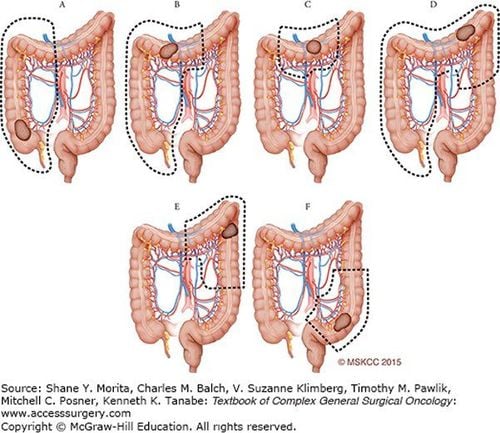
With the development of science and technology, today colon cancer surgery can be done by laparoscopic surgery and robot surgery. Safe, increased aesthetics, less pain, less blood loss and quick recovery. Especially, now with the application of ERAS (the program to enhance recovery after surgery), patients do not have to go through the uncomfortable colon preparation as before, do not have to fast and lie in bed, but can eat and drink immediately after surgery. Hospital stay 3-5 days instead of 10 days before. If the tumor is in the early stages, sometimes it may be enough to just remove the tumor during a colonoscopy (polypectomy, mucosectomy for cancer).
4.2. Other treatment options for non-surgical patients Cryotherapy; Burning high frequency waves; Chemical hepatic embolization. 4.3. Chemotherapy Treatments are often needed to kill cancer cells that have spread to the lymph nodes or elsewhere in the body. Chemotherapy is given as injections or tablets. It can cause many side effects, like fatigue, nausea, and hair loss.
Systemic chemotherapy regimens may include:
5-Fluorouracil (5-FU); Capecitabine; Oxaliplatin; Irinotecan; Combination chemotherapy (eg, capecitabine or 5-FU with oxaliplatin, 5-FU with leucovorin and oxaliplatin); Adjuvant (postoperative) chemotherapy regimens typically include 5-FU with leucovorin or capecitabine, alone or in combination with oxaliplatin. 4.4. Other Treatment Medicines: Drugs that limit the growth of cancer cells are sometimes used, alone or in combination with other treatments. Bevacizumab (Avastin ®): limits tumor growth by preventing the formation of new blood vessels in the tumor. It is indicated as justification treatment for metastatic cancer.
Bevacizumab (Avastin); Cetuximab (Erbitux); Nivolumab (Opdivo); Panitumumab (Vectibix); Pembrolizumab (Keytruda); Ramucirumab (Cyramza); Regorafenib (Stivarga); Ziv-aflibercept (Zaltrap). Immunity: Using drugs or preparations to enhance immunity by autologous or isolated culture of the body's immune cells and then put back into the patient's body.
HIPEC: Intraperitoneal thermo-chemotherapy, which is a heated chemical pump that circulates in the patient's abdominal cavity.
>> See more: Ingredients and uses of functional foods Fucoidan - Article by Pharmacist Nguyen Thi Thanh Hoa - Pharmacist Pharmacy - Vinmec Times City International General Hospital
4.5. Radiation Therapy Uses a variety of beam sources of ionizing radiation. It is used before or after surgery depending on the patient.
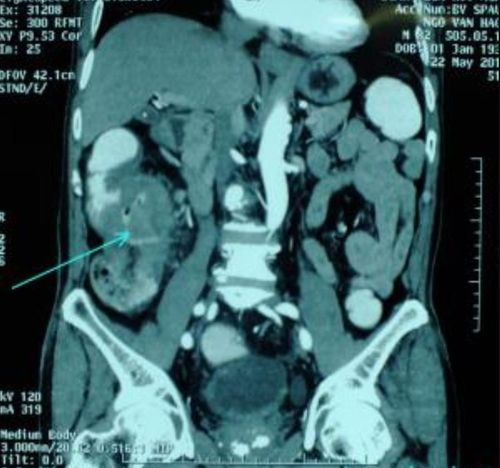
In summary, colon cancer causes high mortality if detected late. Therefore, each person needs to actively screen and check their health for early detection, increase the chances of successful treatment, and reduce the risk of dying from cancer.
Vinmec International General Hospital is implementing the Colorectal Cancer Screening Package, which is implemented by a team of leading medical doctors with extensive experience in the field of colorectal cancer diagnosis and treatment; with the support of a system of modern equipment and technology, a full range of specialized means to diagnose the disease and classify the pre-treatment stages such as: Endoscopy, CT scan, PET-CT scan, MRI, Mammography, histopathological diagnosis, gene - cell testing,...
Please dial HOTLINE for more information or register for an appointment HERE. Download MyVinmec app to make appointments faster and to manage your bookings easily.
Articles source reference:cancerindex.org, gco.iarc





